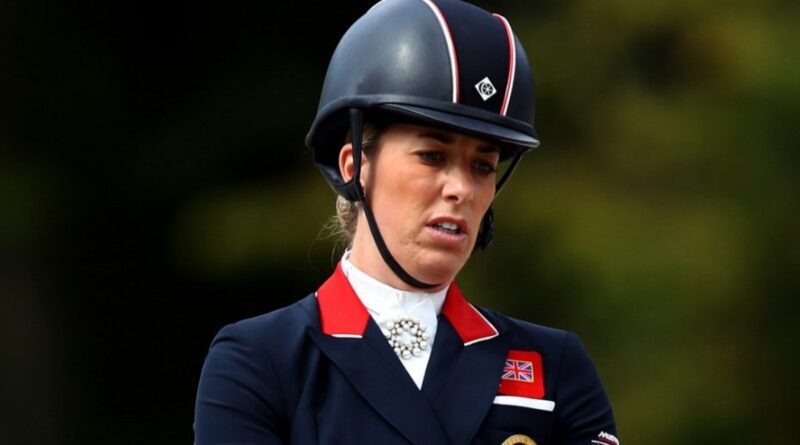Olympic sabotage and Dutch jealousy: Charlotte Dujardin and the unanswered questions
The video of Charlotte Dujardin whipping her horse 24 times was released in a deliberate bid to torpedo her medal-winning ambitions at Paris 2024.
Telegraph Sport attempts to tackle unanswered questions for a sport plunged into sudden disarray on the eve of the Games.
Is the video a targeted attempt against Dujardin?
Yes, clearly. In an interview with Telegraph Sport, the whistleblower’s lawyer, Stephan Wensing, acknowledged his client could not stomach the prospect of Dujardin winning another medal.
Explaining why she had taken at least two years to alert authorities, he said his client was initially “thinking this must be normal” after witnessing the whipping. “My client asked around and was warned against speaking out in the UK,” he said. “But last year my client saw others suspended in the UK and elsewhere.” Over the weekend, he added, “she eventually made a decision to let me admit the complaint to the FEI”, who “took this immediately very seriously”.
Could it have been set up by a rival team?
Less likely. Such suggestions are vehemently denied by the lawyer. Telegraph Sport understands the unidentified 19-year-old woman on horseback for the lesson with Dujardin is English. It is not clear where the sponsor who took the film comes from but Wensing is a Dutch lawyer and the first details of the Dujardin video emerge on an equestrian website in the Netherlands.
It’s understood that bad blood between the British and Dutch equestrian camps stretches back to London 2012, when the team of Dujardin, Carl Hester and Laura Bechtolsheimer swept the board with gold in both individual and team events, leaving the favourites Netherlands with silver and bronze medals respectively. But there are no substantiated links between the claims in the Netherlands and any member of the Dutch equestrian team.
The Netherlands Olympic team, meanwhile, has been busy dealing with its own scandal in recent weeks, facing severe criticism for allowing volleyball player Steven van de Velde to compete despite being previously convicted for raping a 12-year-old British girl.
How widespread are allegations with the sport?
The major furore around a leading figure in dressage is the worst possible timing for a sport desperately attempting to prove its equine welfare credentials at these Games. A dedicated equine welfare officer is on duty for the first time in Paris following a string of cases that have fuelled calls from animal rights activists for the sport to be axed from the Olympic schedule.
In 2022, Sir Mark Todd, another former Olympic equestrian champion, was suspended after a video showed him hitting a horse 10 times with a tree branch. A top US dressage rider, Cesar Parra, is also currently provisionally suspended by the FEI over horse welfare issues. Dujardin, herself, has also faced prior scrutiny, having been eliminated from the 2019 Dressage European Championship Rotterdam after blood was found on the left flank of her horse in the post-competition check.
“I’m obviously absolutely devastated – nothing like this has ever happened to me before,” she said at the time. “The health and welfare of my horses is always my number one priority, but of course I accept the decision.”
How damaging will this be for the dressage team who compete in her absence?
The spotlight, unfairly or not, suddenly turns on team-mates Carl Hester, world champion Lottie Fry, on her new horse Imhotep, and travelling reserve Becky Moody, who takes Dujardin’s place with Jägerbomb. Hester’s closeness with Dujardin will prompt inevitable questions about whether he will condemn her conduct. Fry, meanwhile, has already faced some heat this season, having been eliminated from the dressage World Cup Final in Riyadh in April after her stallion Everdale was judged to have blood in the mouth prior to starting her test.
Dressage News had also reported in March how the FEI had been “actively looking into” a report by Swedish newspaper Aftonbladet that Fry was among riders on horses pictured with so-called “blue tongue”. “The rider which should at all times be a soft and steady connection between the horse’s mouth and the rider’s hand and requires judges to diligently observe this during competitions,” the FEI said at the time, although it appears to have dropped any investigation into Fry’s conduct since.

